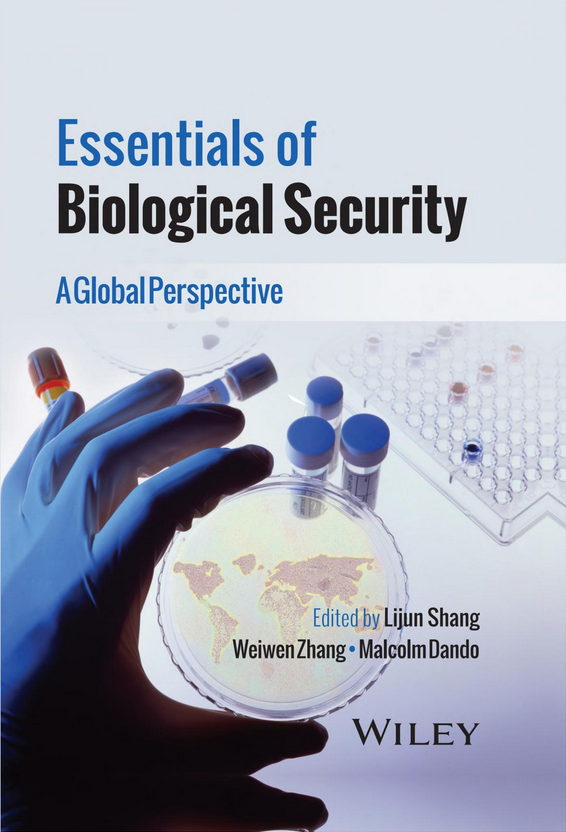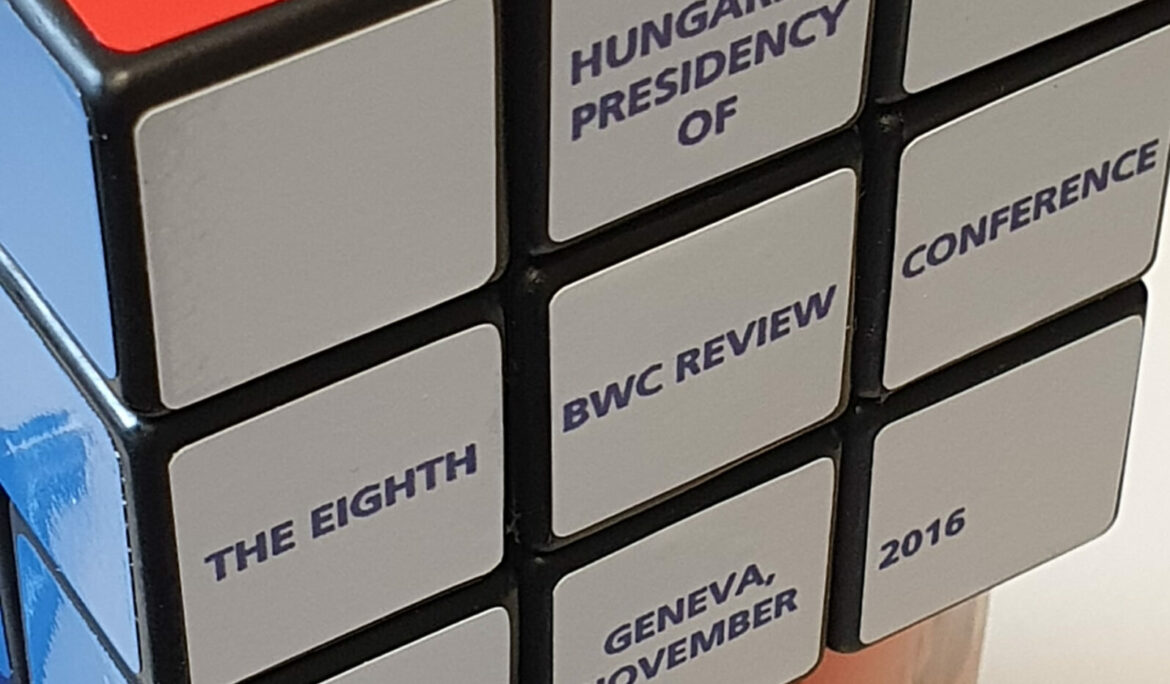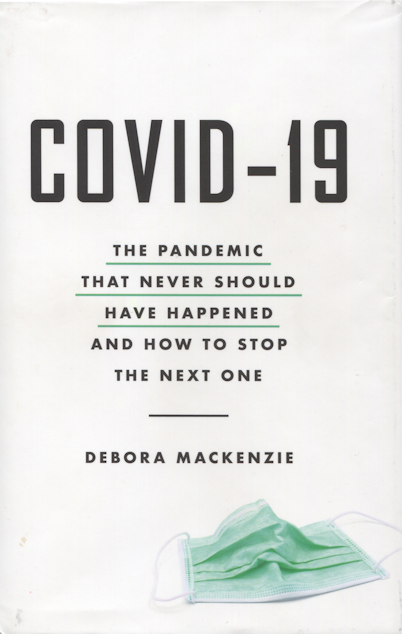Falling between the Cracks and by the Sides
Next month, Essentials of Biological Security: A Global Perspective edited by Lijun Shang, Weiwen Zhang and Malcolm Dando will be published. The book offers an introduction to biological security and the chemical and biological weapons (CBW) threat spectrum and explores the history of biological weapons from antiquity to modern day. Its core comprises expert analyses of the Biological and Toxin Weapons Convention and other relevant international agreements and organisations and practical discussions of dual-use technologies and how to minimise their risk. (For a preview of the book contents, click here.) I contributed the chapter Falling between the Cracks and by …
Constructive ambiguity, or the insertion of science review in the CWC
(Science and technology review under the BTWC, Part 2) Comparing the Biological and Toxin Weapons Convention (BTWC) and the Chemical Weapons Convention (CWC) is a useful exercise for imagining what could have been, especially for the former relative to the latter. Completion of negotiations lies 21 years apart. What became possible by 1992 was simply not an option in 1971. The cold war had ended; the 1987 US-USSR Intermediate-Range Nuclear Forces Treaty paved the way for onsite inspections; and an eight-year war between Iran and Iraq had seen widespread chemical weapon (CW) use on battlefields, against civilians and for genocidal …
‘Within the next 5 to 10 years, it would probably be possible…’
(Science and technology review under the BTWC, Part 1) The next series of Meetings of Experts (MX) of the Biological and Toxin Weapons Convention (BTWC) is due to take place between 30 August and 8 September, a year later than originally scheduled because of the COVID-19 pandemic. Of course, provided there is no fresh resurgence in the number of infections forcing fresh meeting and travel restrictions. If the MXs proceed as planned (albeit with reduced in-person attendance), the Meeting of States Parties (MSP) will likely convene before the end of the year. The pandemic has also pushed back the 9th …
Staring at disarmament’s Rubik Cube: External consensus-building at the 9th BTWC Review Conference
(Science and technology review under the BTWC, Part 3) Hungary presided over the 8th Review Conference of the Biological and Toxin Weapons Convention (BTWC) in 2016. On the first day, Ambassador György Molnár treated all delegations and other attendants to a Rubik Cube, not just because its inventor Ernö Rubik is a compatriot, but also because the participating states parties had a significant puzzle to solve. How to achieve a sufficiently relevant outcome so the convention could take a few small steps forward. A minimum expectation was an agreement on a next round of thematic intersessional Meetings of Experts (MX) …
COVID-19: A perfect storm foretold
Book review: Debora MacKenzie, COVID-19: The Pandemic That Never Should Have Happened and How to Stop the Next One (New York: Hachette Books, 2020), 279p. The book opens with the quote from a poster seen at the first March for Science on 22 April 2017: “Every disaster movie starts with someone ignoring a scientist”. My immediate thought: well, scientists may be clever, but they just cannot express their thoughts in a register that politicians and opinion shapers might understand. Another reflection replaced it instantaneously, this time on politicians: they are so ideological that if their teachings tell them to …
Understanding the Dutch export licence requirement for publishing life science research
During the Meeting of Experts of states parties to the Biological and Toxin Weapons Convention (BTWC) last August, the Netherlands organised or co-hosted three side events relating to safeguarding the life sciences. A significant incident, in which the Dutch virologist Ron Fouchier and his team were required to obtain an export licence to publish their research on how they had mutated H5N1 into an aerosol-transmissible avian influenza virus variant, undeniably informed the need to clarify national policies and approaches to biorisk management. A month earlier the Appellate Court had annulled the ruling by a lower court in support of the …
BTWC Meeting 2017: NGO statement
Joint NGO Statement to the Biological Weapons Convention (BWC) Meeting of States Parties Geneva, 5 December 2017 Mr Chair, Distinguished Representatives: Thank you for the opportunity to speak before you today. I am pleased to have taken over the role as NGO Coordinator from Graham Pearson who so ably carried out this task for 20 years. This year, the NGO community offers a joint statement, to more powerfully focus our key messages to you. I am speaking on behalf of 19 organizations and 40 individuals, the full list of which is attached to the written copy of this statement. The …
Promoting chemical knowledge
On 2 May the Technical Secretariat of the Organisation for the Prohibition of Chemical Weapons (OPCW) organised a workshop relating to its programme to fully implement Article XI of the Chemical Weapons Convention (CWC). I addressed the States Parties in the session on ‘Promoting chemical knowledge’ and focussed on the responsibilities of chemists, both as members of their scientific associations and as individuals, in preventing the misuse of their discipline. Consequences down the road The role of chemists in war is not a new thing. The role of chemists in chemical warfare is of more recent origin. Just over a …
Taking stock of the chemical weapon ban
On 20–21 March the University of Rome III hosted a roundtable discussion to reflect on the current status of the prohibition on chemical weapons (CW) and the future challenges to that ban. Although convened by the Law Department, the speakers represented an eclectic group of experts with backgrounds in international law, political sciences, chemistry and biology, as well as practitioners. Notwithstanding, the meeting yielded considerable coherence in arguments, with questions, challenges and supplementary insights contributing further to an already rich multi-disciplinary texture. The Chemical Weapons Convention (CWC) is at the heart of today’s prohibition on CW and their use in …





